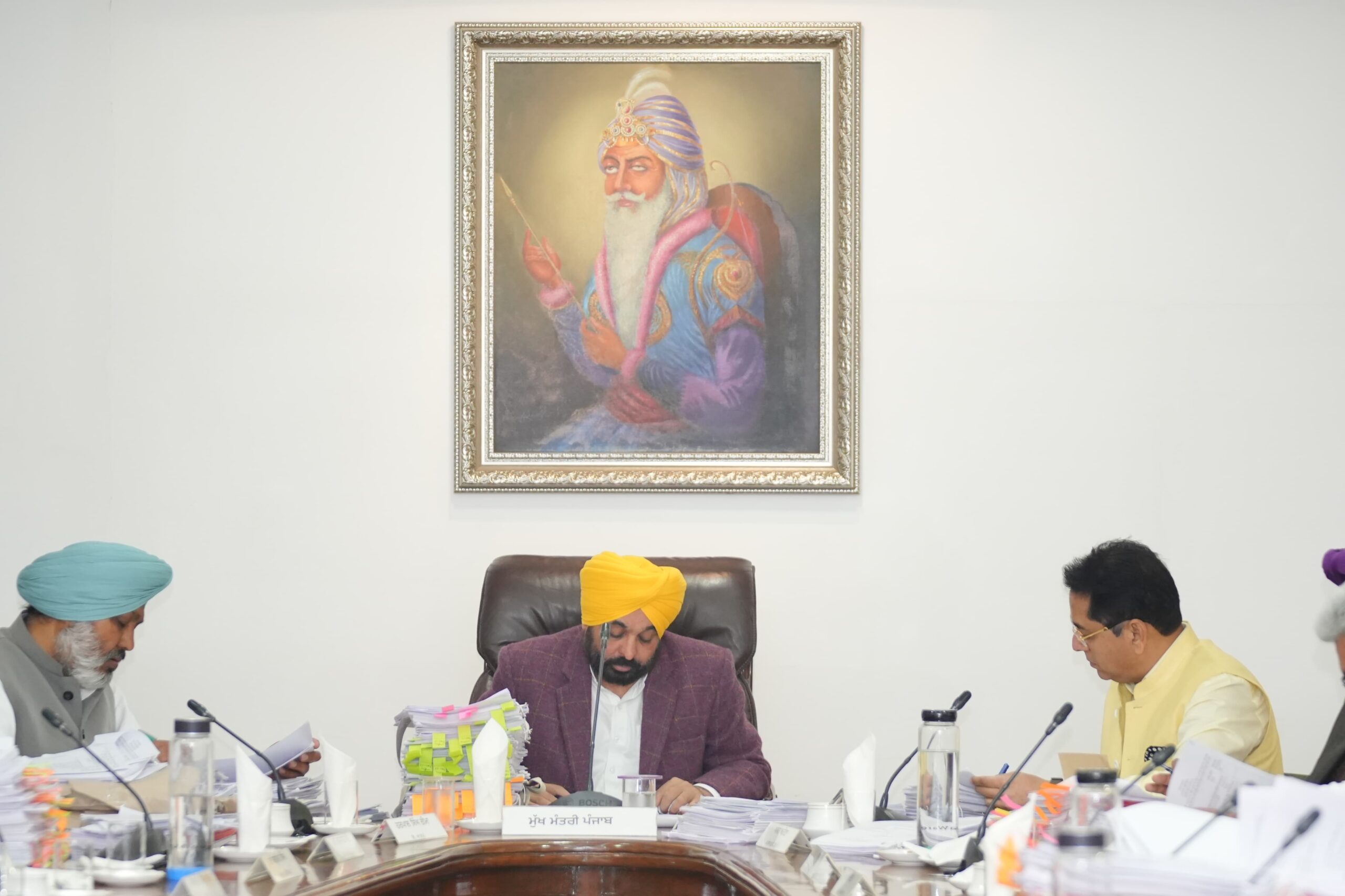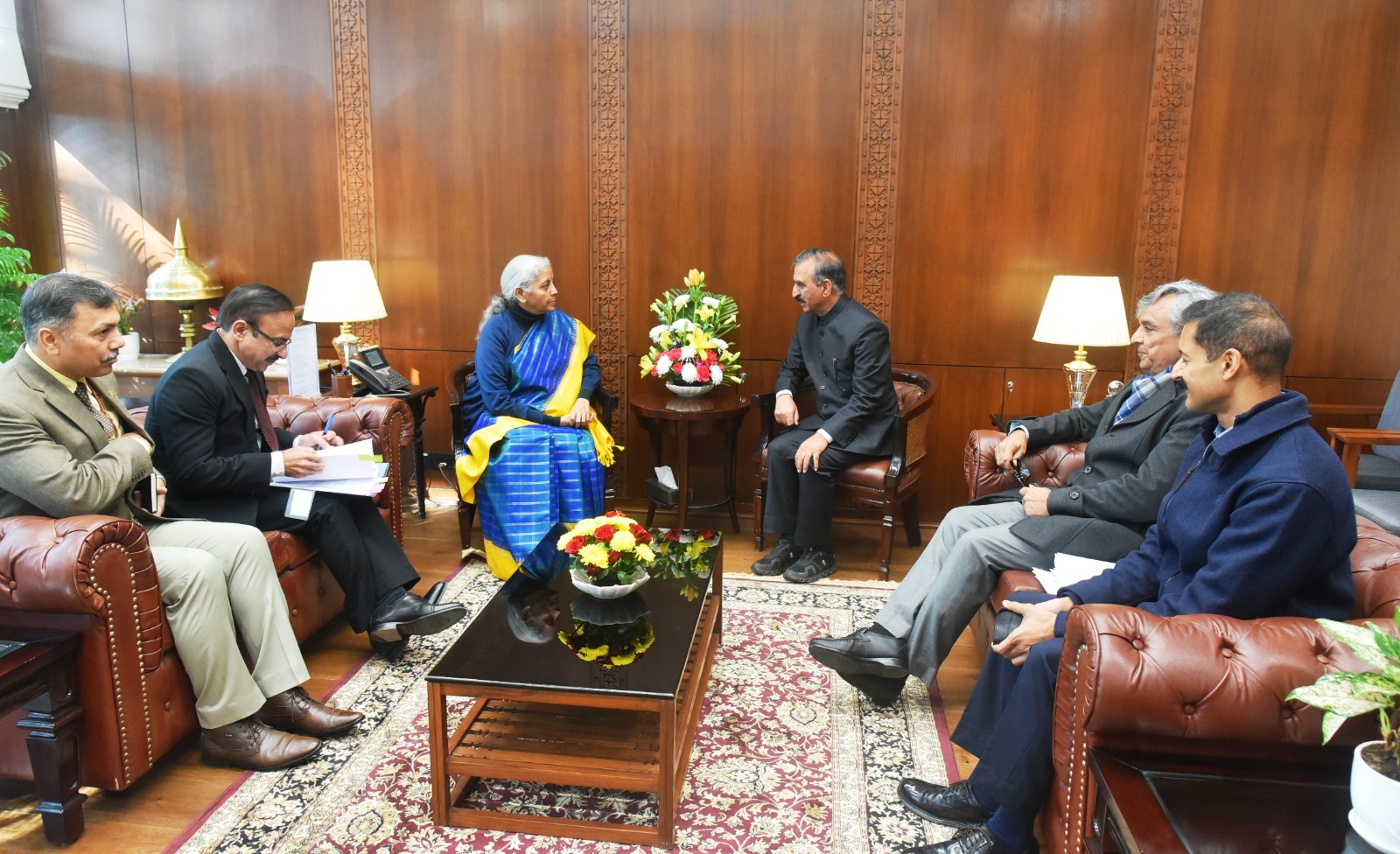The North News
Chandigarh, February 13
The Punjab government has approved the release of pending arrears worth £14bn for state employees and pensioners, in what is being described as a major financial relief. Chief Minister Bhagwant Mann’s cabinet made the decision during a meeting on Thursday, agreeing to disburse the payments in stages.
A spokesperson from the Chief Minister’s Office confirmed that the funds would cover arrears for revised pay, pensions, and leave encashment from January 2016 to June 2022. Additionally, the payments include outstanding dearness allowance and relief from July 2021 to March 2024. The move is set to benefit approximately 600,000 individuals, including 300,000 government employees and an equal number of pensioners.
60,000 jobs to be created across sectors
In a bid to boost employment, the cabinet sanctioned the creation of 60,000 new jobs across government and private sectors. New posts will be introduced in the Punjab State Legal Services Authority, allowing for the establishment of 22 new Lok Adalats, which provide alternative dispute resolution mechanisms. Three new administrative positions will also be created in Malerkotla, Punjab’s newest district.
To improve tax collection efficiency, 476 new posts will be added in the taxation department. Meanwhile, the designation of inspectors in the department will be changed to State Taxation Officers. The Excise Department will also see the recruitment of 53 drivers on a permanent basis.
In the education sector, the cabinet approved changes to recruitment rules for Physical Training Instructors, paving the way for 2,000 new hires in elementary education. In healthcare, 822 posts in the Health and Family Welfare Department will be revived, while 97 new positions will be created at the Dr BR Ambedkar State Institute of Medical Sciences in SAS Nagar.
A separate initiative is expected to generate 50,000 jobs through the waiver of stamp duty, registration fees, and other charges for land transfers linked to the Amritsar-Kolkata Industrial Corridor (AKIC). The project aims to bolster Punjab’s industrial growth and attract global investment.
New housing scheme for low-income families
The Cabinet also approved a policy to optimise land usage for affordable housing, setting aside 1,500 acres for economically weaker sections (EWS). The scattered land parcels in various housing colonies will be monetised, with the revenue directed towards housing schemes for low-income families. The initiative allows development authorities to acquire and plan residential projects for EWS beneficiaries.
Infrastructure levy to be reallocated
A new policy will determine the use of external development charges (EDC) collected from property developers. Under the revised framework, 50% of the EDC will be allocated to infrastructure improvements in specific colonies, while the remaining funds will be used for major state-wide projects.
Acid attack compensation scheme expanded
The Punjab government has expanded its financial assistance scheme for acid attack victims. Previously limited to female survivors, the initiative will now include male and transgender victims, with monthly compensation increased from £80 to £100. The renamed Punjab Financial Assistance to Acid Victims Scheme 2024 aims to provide broader support to affected individuals.
Special legislative session scheduled
A special two-day session of the Punjab Vidhan Sabha has been scheduled for 24-25 February. The assembly will address legislative business, though specific agenda items were not disclosed.
Relief for defaulting land allottees
The cabinet approved an amnesty scheme for property allottees who have defaulted on payments to Punjab Urban Planning and Development Authority (PUDA) and other special development agencies. Under the scheme, defaulters can settle outstanding dues with interest but without penalties. Non-construction charges will be halved, and allottees of institutional and industrial plots will receive extended deadlines to meet compliance requirements.
Fast-track courts for NRIs
To address legal concerns faced by Punjab’s non-resident Indian (NRI) community, the government will establish six special fast-track courts in Jalandhar, Hoshiarpur, Kapurthala, Shaheed Bhagat Singh Nagar, Moga, and Ludhiana. The initiative aims to expedite legal proceedings for NRIs, ensuring timely justice.
Rural security workers receive pay rise
The honorarium for village watchmen, known as chowkidars, will increase from £12.50 to £15 per month, improving their financial stability and service conditions in rural areas.
Land repurposing in Bathinda
A major redevelopment initiative will transform 253 acres of the decommissioned Bathinda thermal power plant site into a mixed-use development, featuring residential and commercial areas, a water treatment plant, a bus terminal, an ESI hospital, and schools. Another 1,235 acres will be returned to Punjab State Power Corporation Limited (PSPCL). Additionally, three lakes on 173 acres of the site will be developed into a tourist destination, generating revenue under a shared-profit model.
Changes to property auction and rental policies
The Cabinet approved amendments to Punjab’s e-auction policy for urban development. Based on feedback from previous auctions, eligibility fees have been revised, and a new formula for reducing reserve prices for unsold properties has been introduced. If properties remain unsold after multiple auctions, reserve prices will be reduced incrementally, with final adjustments requiring government approval.
Similarly, modifications to the state’s rental housing policy will allow rental projects in institutional zones, with the exception of areas in and around Chandigarh and New Chandigarh. The move aims to expand affordable rental options across the state.
















